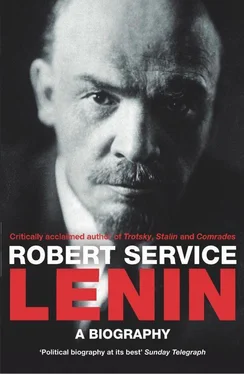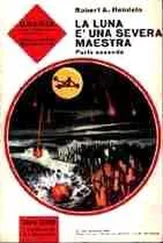As they settled into their new home, they were known by their acquaintances as ‘the beautiful family’. Ilya was esteemed for his achievements in educational administration and Maria was respected for her musical and linguistic accomplishments. The children without exception were successful at school and were noted for their good behaviour at home and in the town. It was a topic of local amazement that none of them strayed into the horticultural part of the grounds. No flower or vegetable was ever trampled, no tree branch broken. It was a matter of honour that no Ulyanov child, even the disruptive Volodya, should misbehave in public. Any such incident was a cause of local comment. For example, neighbours were surprised in winter when the Ulyanov children, like children in all other Simbirsk families, threw snowballs at passers-by through the wicker fence. 16
They were not kept apart from other girls and boys because Ilya Nikolaevich and Maria Alexandrovna supplemented their income by taking in lodgers. Among these were the Persiyanov family, who occupied rooms on the mezzanine floor. 17Vyacheslav Persiyanov was in the same school year as Vladimir Ulyanov. So too was Nikolai Nefedev, whose mother had died and whose father pleaded with the Ulyanov parents to let his son live with them while attending school. The request was granted and space was found for him in a converted bath-house at the bottom of the garden. 18Vladimir played a lot with Nikolai Nefedev. But generally the Ulyanov children sought their closest companions within the family. The children had been brought up to make something of themselves, and each supported the efforts of the others. Perhaps the close ties of the family made it harder for the children to form deep relationships outside the family. Only four of the six grew to adulthood. Of these, Maria never married and seems to have been celibate; and although both Anna and Dmitri married, the weddings took place in their late twenties: there was no rush to leave the Ulyanov home. Vladimir, despite marrying in his mid-twenties, did so in circumstances that make it unlikely that he did this out of a passionate commitment.
The stable warmth of family life, however, did not stop Vladimir from being antisocial to his sisters and brothers. There was always a touch of malice in his character. Thus, although he got on well with his little brother Dmitri, he sometimes teased him badly. Vladimir used to say that Dmitri could cry ‘to order’. Dmitri denied this, but under further baiting from Vladimir he would break down in tears. Then Vladimir would announce that Dmitri indeed cried to order. 19
Such behaviour annoyed his parents and the older children, particularly Alexander. Yet he was still popular with them and it was not thought that his faults outweighed his virtues, and his sister Olga continued to believe that he could do no wrong. His educational prowess was a source of pride to the family. The best schools in Simbirsk were the Classical Gimnazia for the boys and the Marinskaya Gimnazia for the girls. An entrance examination was obligatory and only very able students secured a place. The Ulyanov children were bright and had been prepared for the examination, and their father’s rank in the educational system exempted him from paying the regular thirty rubles per annum for each of them. Maria Alexandrovna had worked on them to get them through the examination. She took each child in turn and used the new-fangled method of phonics and flash-cards to teach them to read. 20Part-time tutors were also employed, mainly from among the young teachers trained by Ilya Nikolaevich. Several of them came to the Ulyanov home, including Vasili Kalashnikov, Ivan Nikolaev and Vera Prushakevich. 21The parents’ expectation of achievement was intense and an early start in literacy and numeracy was recognised as the most effective means of enhancing the children’s eventual educational attainment.
The eldest child Anna sought relief from the pressure of parental expectations: 22
It was I who a year later often begged my mother with bitter tears to take me out of the gimnazia, assuring her that I would accomplish more at home; and sometimes I implored her permission to miss school, sitting down to work with considerable zeal. I sensed very painfully that father would look on this as a manifestation of laziness. I felt that this was unjust, but couldn’t explain this intelligently and did not dare talk about it to father.
Anna was an intelligent girl who had been promoted to the class a year ahead of her age. But she could not cope with the amount of homework and was suffering badly from headaches and insomnia.
Not daring to mention any of this to her father, she asked her mother to negotiate for her to study alone at home. But her father was implacable. 23Anna was too loyal to accuse her father of being insensitive; she did the opposite and reproached herself for being a ‘fiery, capricious’ girl. 24Yet a sense of resentment persisted. She thought that her father might have been a little more indulgent to his offspring when they did well. If Ilya Nikolaevich liked one of her essays, he used to mention it to her mother but not to Anna herself. Simbirsk’s leading educationalist was a poor psychologist. The occasional touch of praise, Anna concluded, would not have gone amiss. 25Not surprisingly, she grew up with a tendency to panic when faced with educational tests of various sorts. Maria, her younger sister, was the same. Both were intelligent and purposive girls, but Maria spent her early adult years starting course after course and not finishing them. Anna was clear in her own mind that the two of them had been pushed too hard as youngsters and that they had failed to pick up the confidence that seemed to come naturally to her brothers Alexander and Vladimir.
Certainly Vladimir was bright and confident. The succession of personal tutors prepared him for a couple of years and in summer 1879, at the age of nine, he sat the various tests for the Simbirsk Classical Gimnazia. In the autumn he entered the first class, which consisted of thirty boys. 26In his dark-blue tunic with its upturned, military collar and nine brass buttons he looked just like the others. He was the second Ulyanov boy to enter the school: Alexander was already a pupil there and was the outstanding student of his year.
The kind of education received by Vladimir Ulyanov has not attracted much attention. But in fact it is of great significance for his later development. The Ministry of Popular Enlightenment had laid down statutes for all Russian gimnazii in 1871. The curriculum and timetable were set in St Petersburg. A preparatory class was introduced so that all pupils might start with a roughly equal opportunity of successful completion of their education. Thereafter, from the age of nine, each boy was expected to undergo a further eight years’ schooling. In the preparatory class attention was paid to the contemporary educational rudiments. Out of twenty-two hours per week, six were spent on the Russian language, six on handwriting, six on mathematics and science and four on religion. Other subjects were brought into the curriculum as soon as the boys entered the first full gimnazia year. In the first-year timetable of twenty-eight hours, eight were given over to Latin, five to maths and physics, four each to Russian and French, three to handwriting, two each to geography and religion. German was introduced in year two, history and ancient Greek in year three. Handwriting was dropped after year one, geography after year four. This balance of subjects was by and large sustained through to the eighth and final year. 27
Latin and Greek constituted half the timetable in years six to eight. The Ministry of Popular Enlightenment saw Classics as purveying the ideals of belief, truth, endurance and courage; it regarded the ancient authors as promoting loyalty to the interests of the Romanov dynasty. As in the rest of Europe, the norm was to get pupils to translate the works of Homer, Herodotus, Thucydides, Xenophon, Livy, Horace and Cicero. Intellectual curiosity was discouraged. The accurate rendering of the authors into Russian was the requirement and the older classes were taught to transform Greek and Latin hexameters into Russian verse.
Читать дальше












